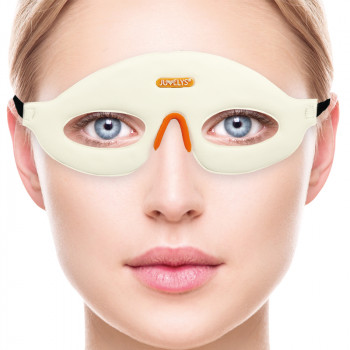 Age-related macular degeneration (AMD) is a common eye disease, particularly after the age of 50. It affects the retina and results in a progressive loss of central vision, making activities such as reading, driving or even recognising faces more difficult. The good news is that it is possible to prevent and slow its progression through healthy lifestyle habits, a suitable diet, regular check-ups and certain supportive therapies.
Age-related macular degeneration (AMD) is a common eye disease, particularly after the age of 50. It affects the retina and results in a progressive loss of central vision, making activities such as reading, driving or even recognising faces more difficult. The good news is that it is possible to prevent and slow its progression through healthy lifestyle habits, a suitable diet, regular check-ups and certain supportive therapies.
What is AMD?
AMD is a degenerative disease of the macula, the central part of the retina responsible for fine vision and detail. The condition does not lead to total blindness, as peripheral vision often remains intact, but it can seriously impair quality of life. There are two forms of AMD:
- Dry AMD: This accounts for around 80-90% of cases. This form develops slowly and is characterised by a thinning of the macula.
- Wet AMD: Rarer but more aggressive, this form is due to the formation of new blood vessels under the retina, causing leaks that impair central vision.
Risk factors for AMD
Although the exact causes of AMD are not fully understood, several factors can increase the risk of developing the condition:
- Age: The risk increases markedly after the age of 50.
- Family history: Genetics play an important role; AMD may be more common in people who have close relatives with the disease.
- Smoking: Smokers are four times more likely to develop AMD.
- Exposure to the sun: UV rays can damage the retina over the long term.
- High blood pressure and cardiovascular disease.
- Diet: A diet low in antioxidants and essential nutrients can affect eye health.
The warning signs of AMD
It is essential to pay attention to the first signs of AMD, as early treatment can slow its progression:
- Blurred or distorted vision, particularly in the centre of vision.
- Straight lines that appear wavy.
- The need for more light to read or see clearly.
- Difficulty perceiving colours.
If you notice any of these signs, it is advisable to consult an ophthalmologist as soon as possible for a full eye check-up.
Preventing AMD: the keys to protecting your sight
AMD prevention is mainly based on healthy lifestyle habits and regular monitoring of eye health.
1. Eat a diet rich in antioxidants and omega-3s
Nutrients play a fundamental role in eye health. Here are a few nutrients to consider:
- Antioxidants: Vitamin C, vitamin E, zinc and beta-carotene are antioxidants that help protect retinal cells from oxidative damage. Citrus fruits, nuts, spinach and carrots are excellent sources of these nutrients.
- Omega-3s: Found in oily fish (salmon, mackerel) and flaxseed, they play a protective role by improving blood circulation to the eye.
- Lutein and zeaxanthin: These carotenoids are particularly beneficial for the retina. They are found in green leafy vegetables such as kale and spinach.
2. Protect your eyes from the sun
Quality sunglasses that filter out 100% of UV rays are essential for keeping your eyes healthy, even in winter. Prolonged exposure to UV rays can damage the retina and accelerate eye ageing.
3. Stop smoking
Smoking is one of the highest risk factors for AMD. Quitting smoking not only reduces the risk of developing the disease, but also improves the general health of the eyes and cardiovascular system.
4. Maintain a healthy lifestyle
Eye health is closely linked to the health of the body. To promote good blood circulation to the retina :
- Get regular exercise.
- Avoid excess salt and saturated fats.
- Maintain stable blood pressure and balanced cholesterol levels.
- Although it is not a direct treatment for the disease, magnetotherapy with the magnetic eye mask can promote ocular rest, tissue oxygenation and blood circulation to the retina. As a complement to other preventive measures, it could contribute to the general well-being of the eyes.
5. Regular eye examinations
After the age of 50, it is recommended that you see an ophthalmologist every two years to detect AMD early. A full examination, including fundoscopy and an assessment of visual acuity, can detect any abnormalities before any troublesome symptoms appear.
Age-related macular degeneration can be prevented by adopting healthy lifestyle habits and regularly monitoring your eyesight. A diet rich in nutrients, good sun protection, stopping smoking and taking appropriate exercise are simple but effective ways of preserving vision. Magnetic therapy, although not recognised as a specific medical treatment for AMD, can be considered in support of maximising eye health and reducing the effects of ocular ageing.
With these measures, it is possible to slow the progression of this condition and continue to enjoy good vision, even as the years go by.



